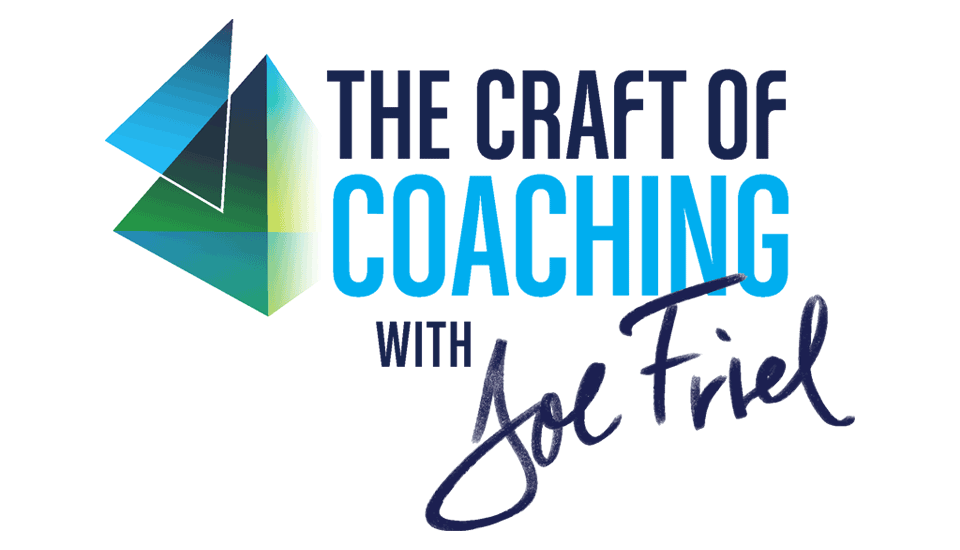Balancing Athlete Data and Devices
I’m really somewhat of a data freak… but the thing I’m most interested in as a coach is “How do you feel?”
Joe Friel
Find more on this topic from The Craft of Coaching and Fast Talk Labs:
Coach Ben Day of DaybyDay Coaching knows firsthand that pressure to hit the numbers can be formidable, both as a result of his work with WorldTour athletes and 14 years as a pro cyclist. He talks with Coach Joe Friel about Measuring Performance and Progression (pick up at 13:27), one of many interviews and articles featured in Craft of Coaching Module 6, Managing Athlete Performance.
Coach Julie Young shares her experience working with athletes in Kaiser Permanente’s Endurance Lab in Module 7, The Versatile Coach, and debunks two myths she regularly encounters: 1) Power is the key to performance. 2) If a little is good, a lot is better.
For more on helping your athletes navigate training data, check out Trevor Connor’s list of Do’s and Don’ts in What Training Data Tells Us, and When to Ignore It.
Video Transcript
Ryan Kohler 00:03
Today we can measure and monitor just about everything and wear things on different parts of our body to do that, so we have 24/7 access to data on what we’re doing, how things are, how everything’s functioning.
Helping Athletes Find Meaning in the Data
Ryan Kohler 00:17
I think with age-group athletes, it’s easy to have them get a little bit caught up in… for me personally, I see it more they get caught up in too much data and, you know, they start looking at one thing, go down the rabbit hole, keep adding more things to it. Then, they’re just, they’re sort of overwhelmed. So trying to help them figure out what’s important, and that’s a process that I’ll always go through with them is asking them, “What’s meaningful to you? We have all this stuff, but you can’t monitor it all. It’s just you don’t have enough time to do it. So pick out the things that are meaningful for you.” And for athletes that don’t have data or don’t like it or just aren’t interested in it, then how do we help them find meaning to their progress that way, and it could be nondata-driven, so it works either way. But, I think it’s just getting with the athletes to say like, “what’s the meaningful thing for you?” and then going from there.
Joe Friel 01:02
If you had to find out one thing from your athletes, what would it be? What would be the most important thing for you to know about your athlete having done this workout today?
Importance of Perceived Effort, Sense of Feel
Ryan Kohler 01:10
So one thing is hard. If you give me two, I can give you two, but I’ll give you one.
Joe Friel 01:16
Two is okay.
Ryan Kohler 01:17
Okay. So perceived effort and sensation or feeling.
Joe Friel 01:23
So what they were sensing is the most important thing. I would really agree with that. I’m really somewhat of a data freak. I love crunching numbers and seeing how we’re progressing in terms of power, heart rate, pace, and all these sorts of things we’ve got available to us now. Even wearable data, you’ve get your Oura ring, you’ve got all this stuff available to us anymore. It’s endless, but the thing I’m most interested in as a coach is How do you feel?
Wearable Data Can Be Misleading
Alison Freeman 01:51
What’s interesting, too, about these newer wearables, like the Oura ring and the Whoop strap is that sometimes that data kind of overrides how an athlete feels and they will look at those readiness scores and let that decide if they’re fatigued versus actually relying on their own perception. I had an athlete who was consistently writing in their TrainingPeaks workout comments that “I didn’t do my bike because my Whoop score was ‘something.'” I finally had to tell her to take it off and not wear it for a month, because she was letting the data dictate how she felt, instead of deciding it on her own.
Joe Friel 02:31
I follow people who talk about this all the time, and other athletes now that I read online, are asking more questions about, “What kind of device should I get? How do I test? How do I look at the data?” They’re already looking at their heart rate. They’re looking at their power meter, they’re already looking at how their sleep is going. They’re already looking at what their Whoop says, what their Oura says. They just keep adding more and more things on to this, and yet somehow we never come back to the most basic thing, which is, “How did you feel? How do you feel right now after you slept tonight? When you wake up in the morning? Are you ready for a workout… or not?” That’s the most basic thing.
Ryan Kohler 03:12
Yeah, and if they feel good, their mood will be high, their motivation will stay high. They just do better that way. It’s sort of building that foundation of how do you feel, how’s your mood, and everything like that? Then we pick up with the more objective data on top of it. But yeah, if we don’t have that foundation, it’s hard to know. Or they’ll run themselves down that path of “It doesn’t matter how I feel right now. I’m just gonna stick with watching these numbers. I want to see the numbers go up, or I want to see the numbers go down,” or whatever it is, and they forget about that stuff. We always have to bring them back to that.
Joe Friel 03:41
We do.
